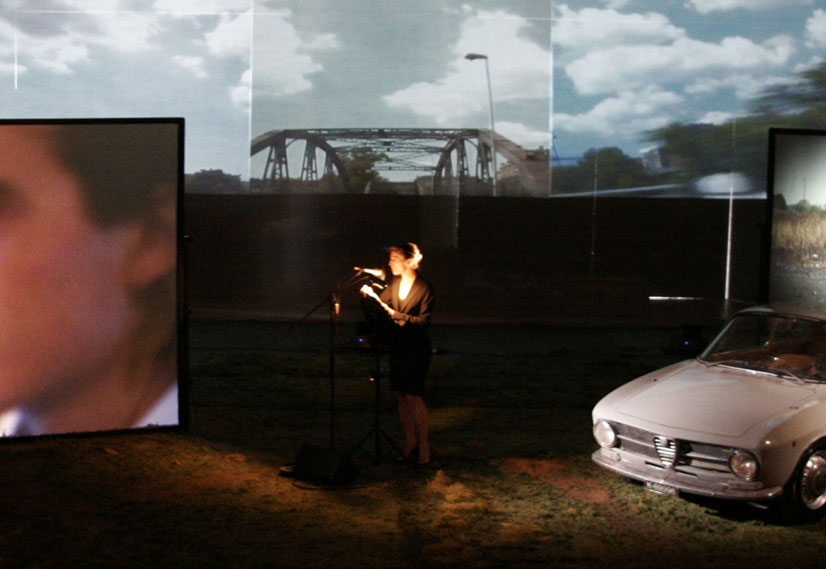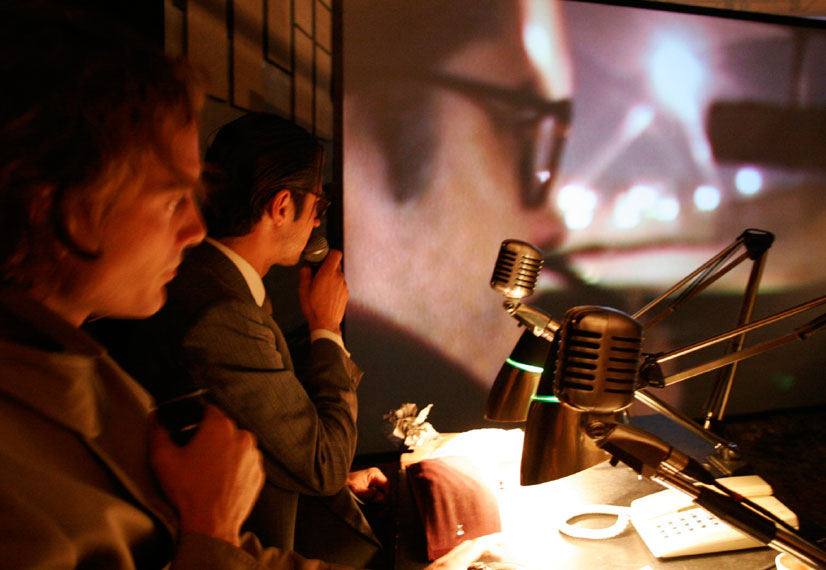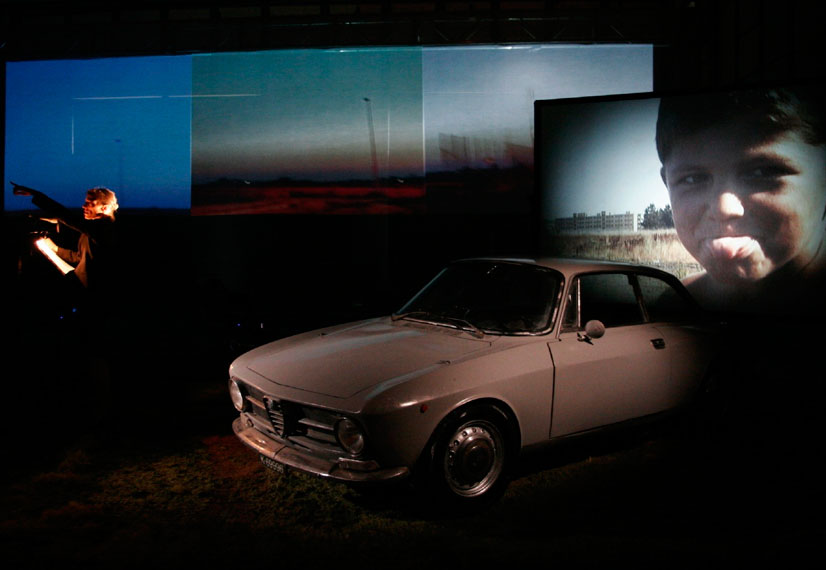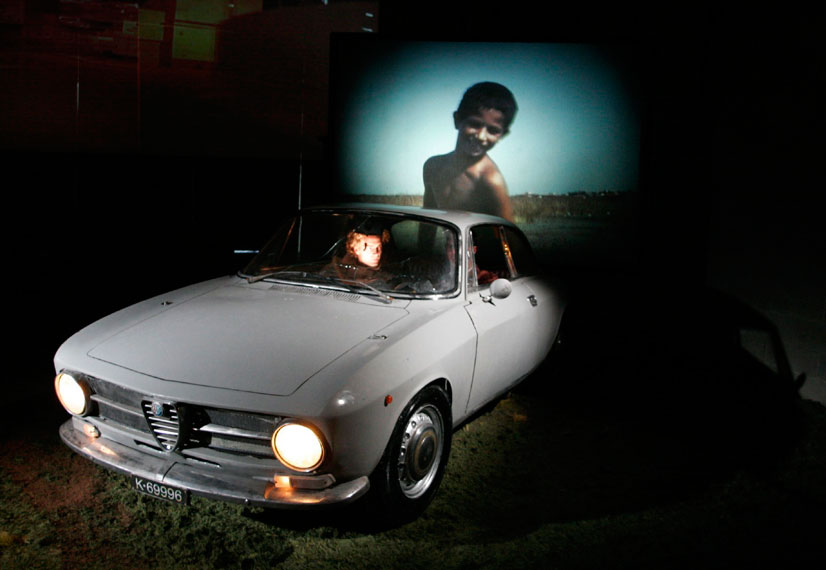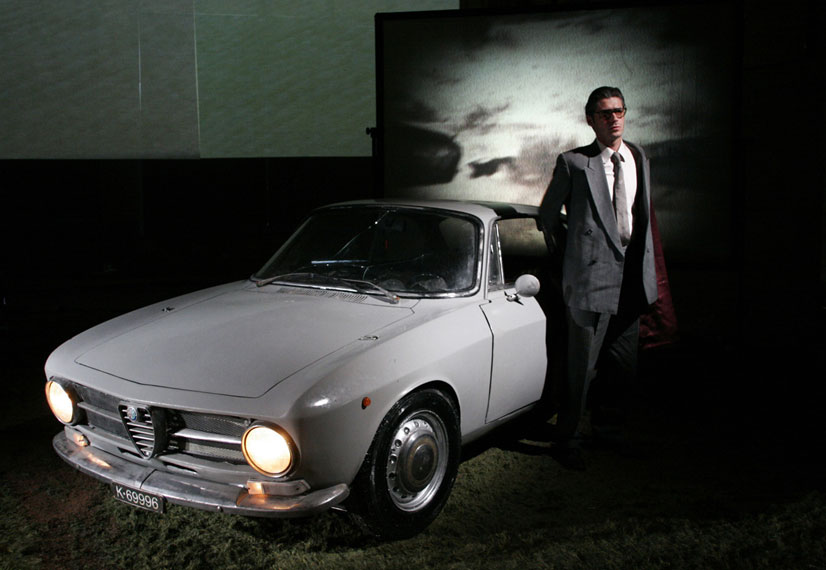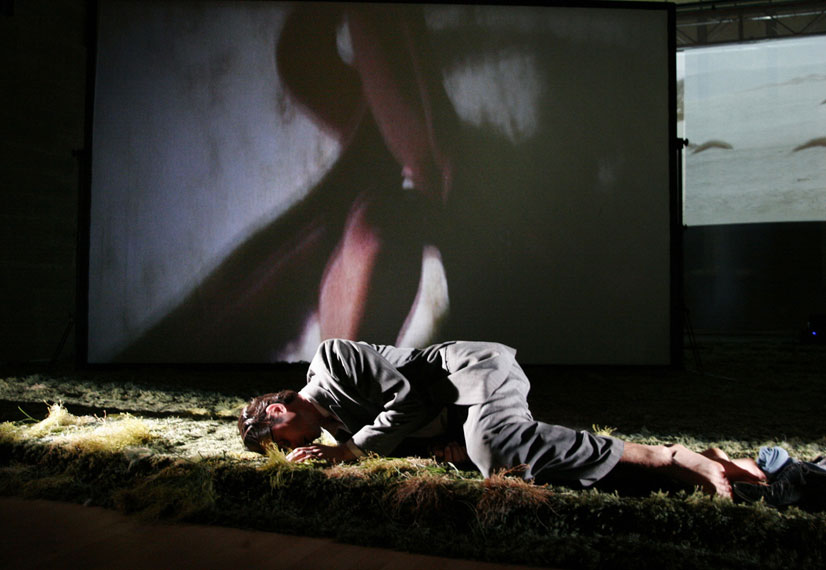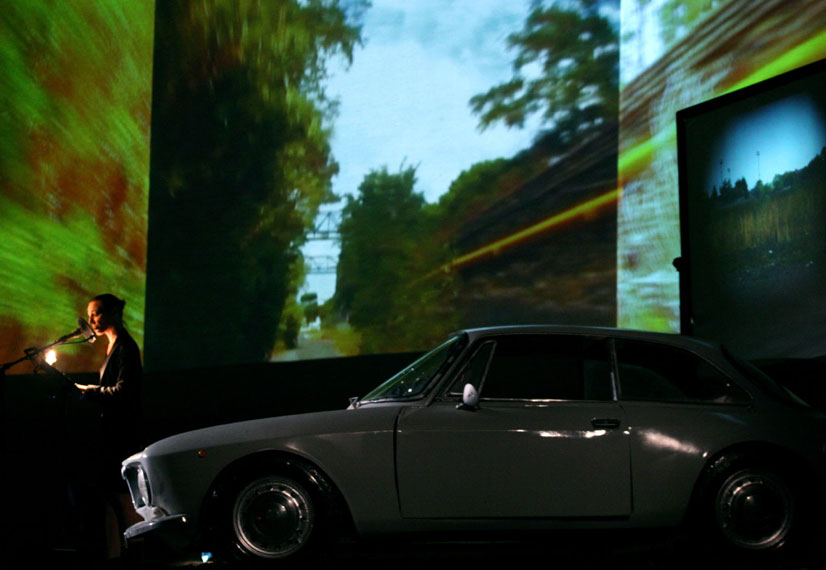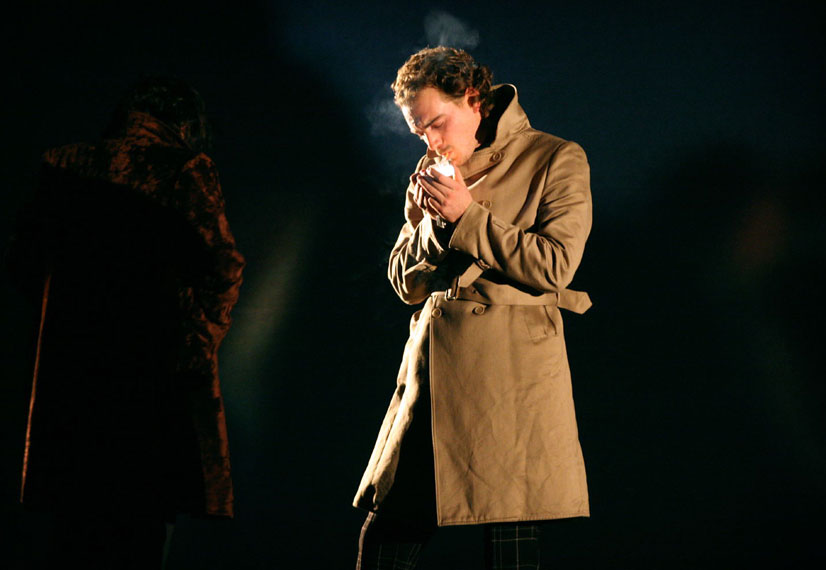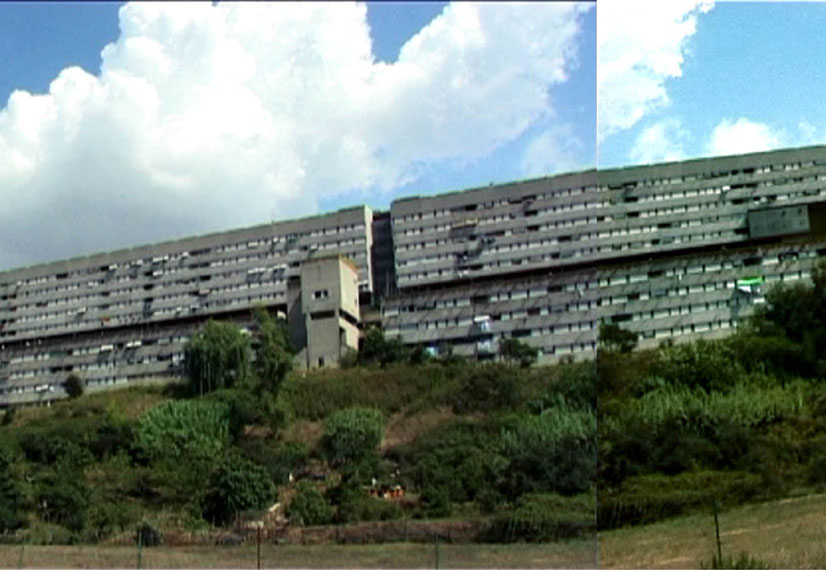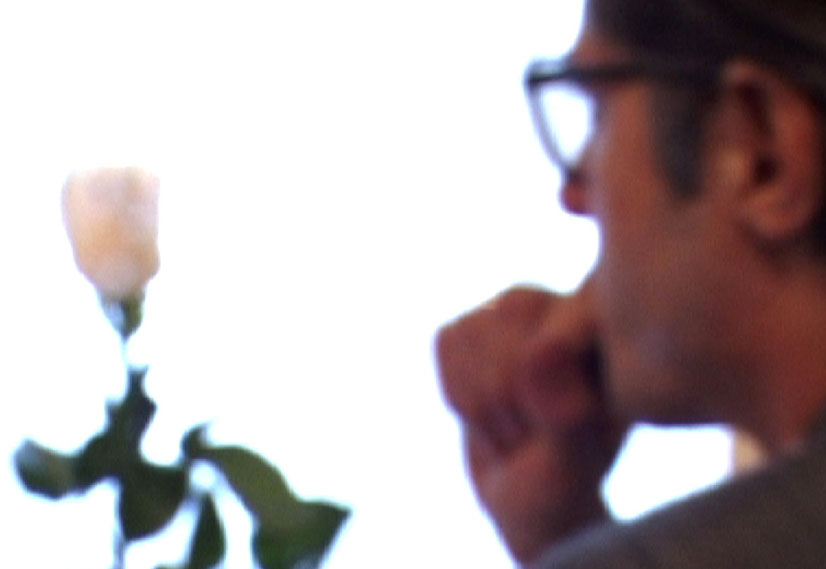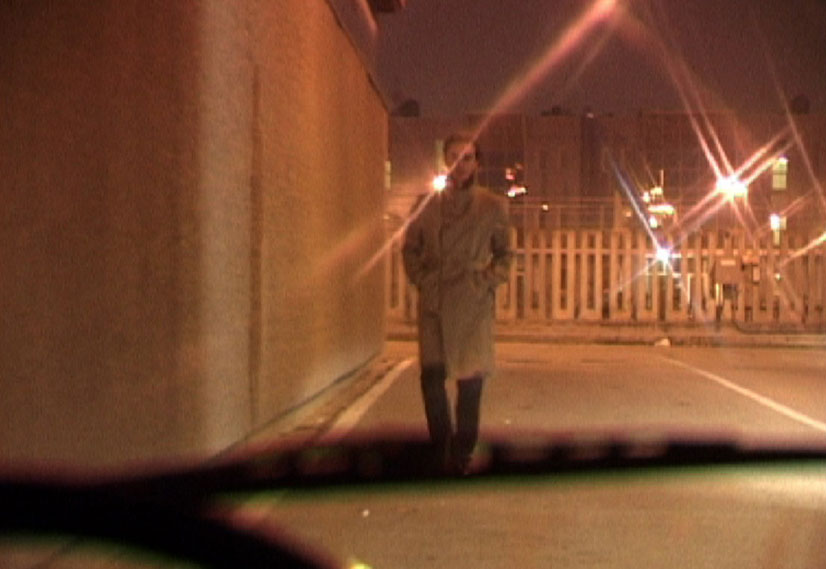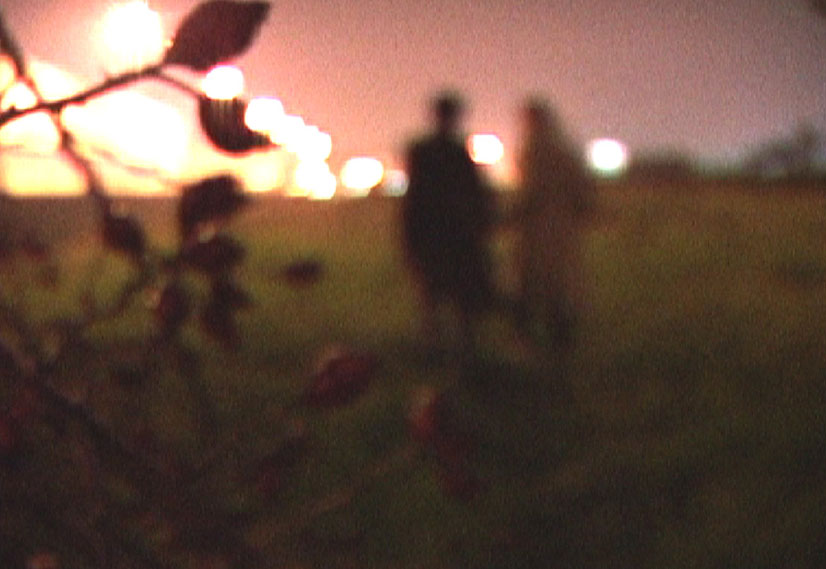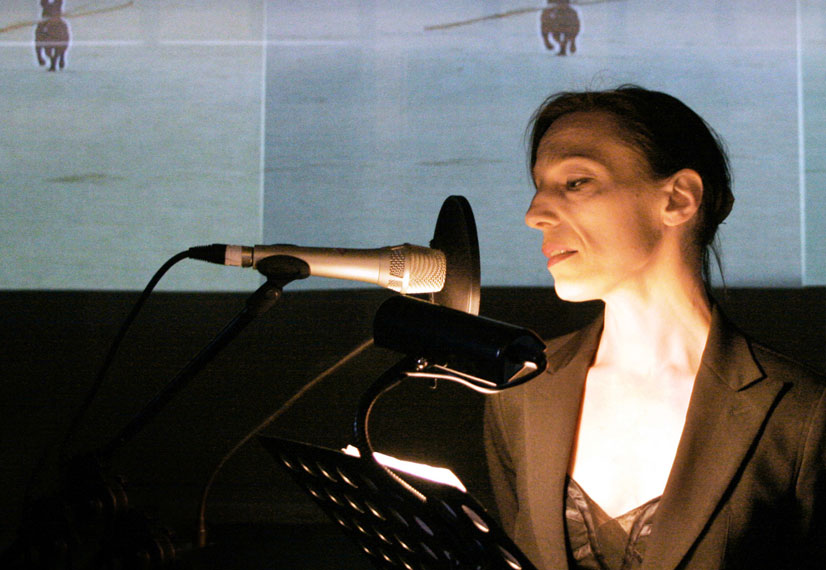
© Diego Beltramo
“Filthy” waste-grounds, excavated spaces, rust and dust andlitter, burnt-out cars, gipsy camps, the “ruins” on the Casilina and then out towards Corviale, the reinforced concrete “incubator” and down, down to Fiumicino and the last surviving shanties in Ostia which are due to be razed to the ground in 2004 – so the infuriated residents told us – to make way for a new tourist village… Then Naples with Volla, Secondigliano and Bagnoli.
A non-tourist trip that maybe everyone should make if they really want to know this city.
We decided to set out from the margins, and it may be that we shall return to these same terrains vagues after having attempted a trip, or better, the “Scheme of a trip”, by car: Motus and Pasolini, trying to superimpose glances that substantially have never been very distant.
Just as it is a journey to move through his words, between the lines and “notes for”, so the characters in his novels and films are always on the move, right down to the testament-monument Petrolio (Oil). A journey that ends, that is interrupted by a violent death, the only thing capable of achieving the definitive, shocking montage “on the unstoppable life sequence plane”. “(…) So it is absolutely necessary to die because as long as we are alive we lack meaning (…) death achieves an instantaneous montage of our life”.
Pasolini loved car racing, fast sports cars, loved going around alone at night:“I drive on the Tuscolana like a madman, on the Appian Way like a dog without a master”, always seeking, always expecting because he always,always lacked something.
So we’ve chosen a dynamic perspective of a car on the move as the first device for approaching his work, using mainly video, or rather a “reality-eating” machine we built ourselves, consisting of a bracket on the car dashboard with three cameras that synchronously shoot the landscape in motion.
We’re trying to superimpose another filter, dated 2003, on that “long pan” of the Visioni del Merda, like a great kinetic triptych, because it was precisely in Torpignattara that we began shooting. It was upsetting to live for days along “those roads” in the areas where discarded humans and materials accumulate. At the same time we retraced Pasolini’s enthusiastic descriptions of landscapes where attention to the light of the sky is almost obsessive …
A necessary dip into reality in order to start the long creative process of “The Guest”, the show that had its first night in Rennes in April 2004 and in which we attempted acrobatically to carry out – starting with the novel Theorem – a transversal journey around those of Pasolini’s works in which there is materialisation of a sacred-destructive element that takes on various forms also in Pigsty, St. Paul and Oil. A lacerated itinerary between the New Suburbs and the desert.
Reflection of Pasolini’s decision to start writing about members of the bourgeoisie, a class he hated (“repugnant” he called them in his letter to Moravia appended to Oil…) “(…) yes, even the communist is bourgeois. This has now become the racial form of humanity.”
The theme of crisis and the “banality of evil” in the everyday, within the “new consumerist totalitarianism”, had already been the fulcrum of the whole Rooms project where, in the analysis of the bourgeoisie implemented in an ironic key by DeLillo (and by Genet), the traumatic element was to carry out an extreme act, such as murder, to overcome the fear of death… whereas in Pasolini it is the advent of an external scandalous occurrence such as the brusque arrival of a guest, or an angelical or demoniacal visitation, as in Oil, that brings about the unveiling, the break…
In notes 59 to 62 for Oil, the “manifestation” of Carmelo before Carlo, an engineer with the national oil company, triggers the same emotional bewilderment that the advent of the Guest causes in the family in Theorem. We decided to superimpose, on the images of our first trip to the suburbs, narrative elements/fragments of this encounter, read live by a “Sadean” narrator like Emanuela Villagrossi.
Her voice, accompanied by a physical/acoustic concert of the other two (male) characters, guides the crescendo of this revelatory relationship between victim and executioner in which Carlo follows Carmelo “like a dog, indeed like a bitch (…) to the centre of that great expanse of land, with all around, far away, the lights of the various districts against their different skies.”
There are the sand deserts of the East and of Africa, places of mystical experience and oil wells… but there are also suburban deserts, no-man’s-lands, the unstable boundaries between town and country, where the effects of forced globalisation and a certain unscrupulous, wholly Italian property speculation have given birth to their monsters, depositing them on the land without a before or an after…
“No desert will ever be more desert than a house, a piazza, a street where you live one thousand nine hundred and seventy years after the birth of Christ. Solitude is here. Crushed in like a sardine with your neighbour who buys his clothes from the same chain stores as you do, who goes to the same shops, reads the same newspapers, watches the same television. This is silence.
There is no better metaphor of the desert than everyday life.”
From notes for a film on St. Paul, 1968/74

